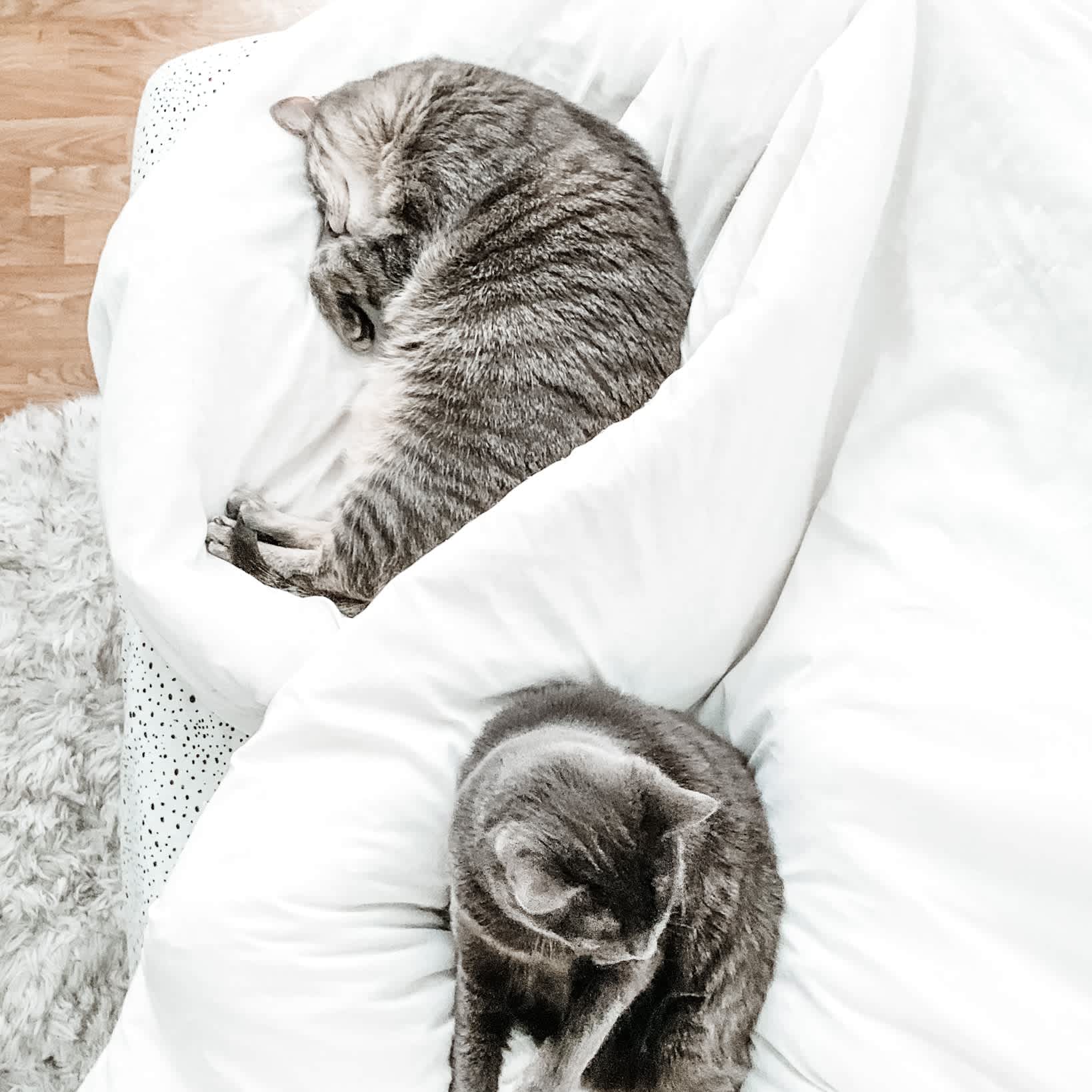
- POPSUGAR Australia
- Fitness
- If You Really Want Better Sleep, Start Strength Training
If You Really Want Better Sleep, Start Strength Training

It’s no secret that exercise can help you sleep better, longer, and more deeply, but cardio has always seemed to have the edge over resistance training, at least in the popular imagination. It makes sense: cardio workouts like running, swimming, or biking leave you exhausted and drained. Personally, after a long run, usually the most I can do is stretch out, drag myself into the shower, and collapse into bed. But according to a new preliminary study, it turns out that resistance training might actually help you get more sleep, and higher-quality sleep, than cardio.
The study, presented today at the American Heart Association’s Epidemiology, Prevention, Lifestyle & Cardiometabolic Health Conference, involved 386 adult participants classified as overweight or obese by body mass index (BMI). They were sorted into four groups: an aerobic (cardio) exercise group that did workouts on treadmills, stationary bikes, or ellipticals; a resistance group that used machines to complete exercises like leg presses, chest presses, lat pulldowns, crunches, and lower back extensions; a group of combined aerobic and resistance work; and a control group without an exercise assignment.
The study lasted for a year, with everyone in the exercise groups participating in three, 60-minute sessions per week, supervised by the researchers. The combination exercise group did 30 minutes of aerobic and 30 minutes of resistance exercise. The participants also completed self-reported sleep assessments at the start and end of the study period, measuring sleep duration, sleep efficiency (how much time you’re actually sleep divided by the time you spend in bed), sleep latency (how long it takes you to fall asleep), and frequency of sleep disturbances.
Across the board, the researchers found that resistance training led to better sleep for their participants, though all of the exercise groups experienced some improvement. For instance, resistance training led to an average of 40 minutes more sleep among participants who, at the start of the study, weren’t getting at least seven hours of sleep per night. By comparison, the cardio group saw an average increase of 23 minutes, with an increase of 17 minutes in the combined exercise group. (The control group also saw an increase of about 15 minutes.)
Quality of sleep was also affected. The resistance and control groups saw increased sleep efficiency, while the aerobic and control groups did not. The resistance exercise group was also the only one to fall asleep faster, by about three minutes.
“While both aerobic and resistance exercise are important for overall health, our results suggest that resistance exercises may be superior when it comes to getting better ZZZs at night,” concluded study author Angelique Brellenthin, PhD, assistant professor of kinesiology at Iowa State University. She noted that resistance training “significantly improved” both sleep duration and sleep efficiency, which are “critical indicators of sleep quality” that reflect how well you fall asleep and stay asleep at night.
So yes, resistance training can help you build muscle and boost your metabolism, but its list of benefits just keep getting longer. Adding in a couple of strength sessions to your workout routine might be a simple way to help you grab better sleep at the end of the day, so grab a couple dumbbells and jump in.


